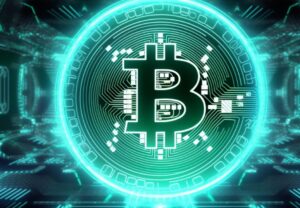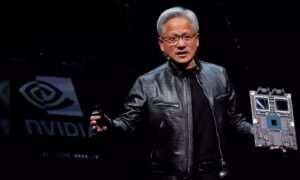How NFTs Revolutionized Virtual Land Ownership
3 min readThe concept of virtual land has been around for decades, such as with the Multi-User Dungeon games of the late 70s. These text-based games evolved into MMORPGs like Worldsaway and Dreamscape, all the way to today’s immersive virtual land experiences like No Man’s Sky or Minecraft.
However, these virtual land platforms all have one thing in common: They’re centralized, which means that players don’t truly own their virtual assets. Developers don’t get extra profit when a user buys a virtual asset, and players can’t trade virtual land against digital assets with real value, like BTC or Ether.
This results in an ecosystem where developers are underpaid and scandals abound when players lose access to their accounts on the whim of a centralized entity. NFTs are solving these issues, and as a result, the NFT market exploded from just $13 million last year to over $2.5 billion today.
The evolution of virtual land
NFTs have revolutionized the virtual land market by creating a truly decentralized, transparent, and secure platform for virtual asset ownership.
This means that when a player buys a parcel of virtual land, it verifiably belongs to them, and there’s no centralized authority to block their account or take away their assets. This is because NFTs are essentially just like any other blockchain asset: they have a price, they can be bought or sold on an open market, and they’re protected by distributed cryptography.
Players also truly own their digital names, avatars, and other digital items like skins and art. Because these assets are owned by the player, they can trade them freely with other players in the same game or even across different games. The result is a more vibrant economy where all users get rewarded for contributing to the health of the network.
Since everyone owns their own assets on a shared public ledger, there’s no need for middlemen to mediate transactions between users. As an added bonus, this has made it possible for smaller gaming studios to achieve real economies and monetization models with their games.
Finally, since all information about each parcel of virtual land is stored on-chain (and therefore publicly viewable), players can rest assured that any changes to this information will be reflected on-chain as well—there’s no need for centralized servers or databases which could be compromised or shut down at any time.
These benefits alone have made NFTs the preferred choice among developers building new virtual world experiences. Next Earth is building the first fully decentralized virtual world, where all virtual land transactions are made through the public ETH blockchain. This includes the marketplace, which acts as a central hub where users can buy and sell NFTs.
The vision
In the longer term, ideas like Ready Player One envision a world where owning virtual land is as common as owning physical property today.
These concepts are closer to becoming a reality with the use of NFTs for virtual land, since you own a cryptographically verifiable title to the land that you can prove to any potential buyer.
A virtual world that’s intertwined with our own would indeed require these features, as people need to be assured that they’ll own and control their virtual selves. As a result, the impact of NFTs on virtual land ownership is only just getting started.
Implications for traditional virtual land platforms
NFTs have made it possible for developers to build more immersive worlds and earn a real living from their passion—all while giving players complete ownership over their digital assets. Similarly, since there’s no middleman taking a cut of transactions, game operators can charge less for premium content or services without worrying about losing money.
Through initiatives like Polygon Studio, which is offering $100 million to gaming NFT projects, we’ll see more and more decentralized gaming projects. This will even fuel decentralized gaming studios, which will provide high-quality content at scale without having to compromise developer profits through intrusive advertisements or paywalls.
For traditional virtual land platforms like Minecraft and Roblox to experience these benefits, they’ll need to introduce NFTs. Indeed, these platforms are already starting to move in that direction, as Roblox recently had its first blockchain-powered game world, and Microsoft launched a program that rewards players with Minecraft NFTs. Clearly, there’s a bright future for virtual land ownership, which is heading further towards NFTs.






